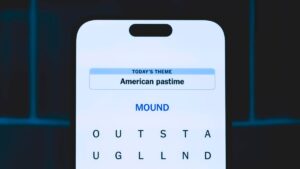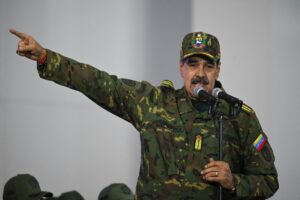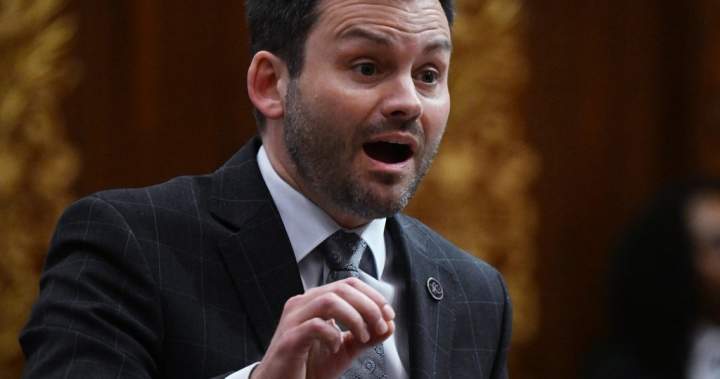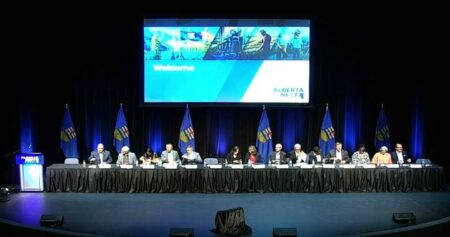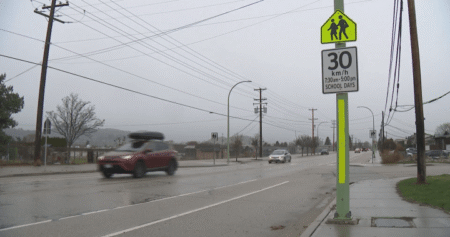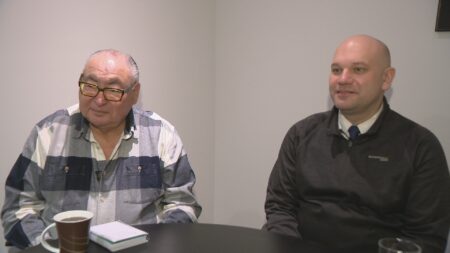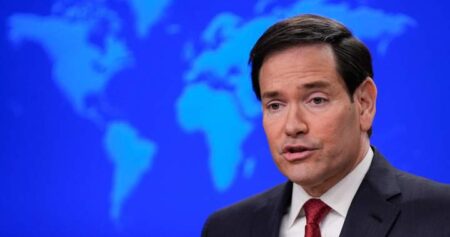The Parti Québécois (PQ) says holding another referendum on Quebec sovereignty is essential for maintaining social peace — even as a new survey shows most Quebecers oppose the idea.
Despite 65 per cent of Quebecers indicating they would vote “No” in a sovereignty vote, PQ Leader Paul St-Pierre Plamondon is pushing forward with the promise of a third referendum if his party forms government in the next provincial election, now just a year away.
“The Canadian model is not only disrespectful, it’s illegitimate and a threat to social peace,” St-Pierre Plamondon said, citing recent federal funding for English-language health care in Quebec as an example.
“I have nothing against obtaining services in English when you’re English-speaking,” he added, “but I have a problem with wasting public funds that are our money with policies that are not democratic.”
The PQ is leading in voter intention polls, and St-Pierre Plamondon has been increasingly vocal about the need for Quebec to separate from Canada — 30 years after the last referendum in 1995.

Get daily National news
Get the day’s top news, political, economic, and current affairs headlines, delivered to your inbox once a day.
He dismissed the polling numbers on sovereignty, comparing them to public dissatisfaction with the current premier: “Eighty-four percent of Quebecers don’t want François Legault, and that doesn’t prevent him from running in the next election.”
But opposition parties say talk of a referendum is out of step with voters’ priorities.
“I want to talk about jobs, I want to talk about economic growth, I want to talk about health, I want to talk about education,” said Quebec Liberal Leader Pablo Rodriguez.
“I think that a referendum is more of a threat to social peace. A referendum brings a lot of instability.”
Rodriguez, a former federal cabinet minister, also made headlines by suggesting Quebec could eventually sign the 1982 Constitution Act — something no other Quebec Liberal leader has previously supported.
“The Constitution will be signed when we reach an agreement on Quebec’s conditions,” he said.
Justice Minister Simon Jolin-Barrette, of the current Coalition Avenir Québec government, criticized Rodriguez’s stance, calling it a break from the legacies of past Liberal premiers.
“He does not respect the heritage and the legacy of Robert Bourassa, of Jean Charest and Philippe Couillard, who refused to sign that Constitution,” said Jolin-Barrette.
He also took a jab at Rodriguez’s federal past: “Pablo Rodriguez still thinks that he’s in Ottawa and he’s the leader of the Canadian Liberal Party. He’s now in Quebec. He is the leader of the Quebec Liberal Party.”
With the PQ in a dominant position in the polls, debate over Quebec’s place in the federation appears poised to re-enter the centre of the province’s political discourse.
© 2025 Global News, a division of Corus Entertainment Inc.
Read the full article here

